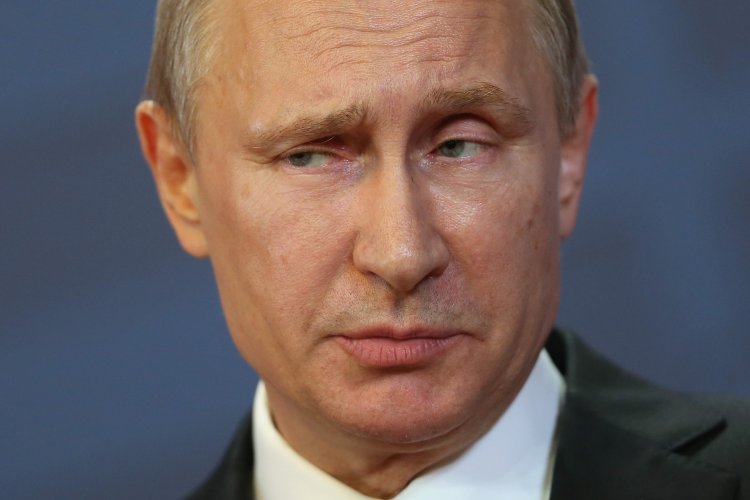If Putin cuts oil supply to the West, all bets are off.
That spike would sharply raise prices at the gas pump too. The US national average for regular gasoline already stands at $3.61 a gallon, according to AAA. That's up to 8 cents in a week and 25 cents in a month. Even though the United States consumes very little Russian oil — oil imports from Russia stood at just 90,000 barrels per day in December — this is still an interconnected and global market. Supply shocks in one part of the world can impact prices everywhere.

Russia is on the verge of a full-fledged financial crisis. Sanctions imposed by the West have driven the ruble to new lows, shut down Moscow's stock exchange, and rendered Russian assets toxic on the global arena.
The White House has even targeted Vladimir Putin's financial fortress, blocking access to at least a portion of Russia's $630 billion rainy-day reserve, which was created to cushion the economic impact of this catastrophe.
The key question now is how Putin, who is now facing Western sanctions on his pond in what is quickly developing into economic warfare.
There are rising fears that Putin will react by using crude oil as well as natural gas as a weapon against the West.
In a report released Monday, Louise Dickson, senior oil market analyst at Rystad Energy, wrote, "Russia's energy supplies are very much at risk, either due to being withheld by Russia as a weapon or swiped off the market due to sanctions."
Oil production was already falling short of demand around the world. If Russia, the world's second-largest oil supplier, deliberately held back supply, oil prices would undoubtedly increase, causing a devastating blow to consumers around the world.
Gasoline prices would go much higher
To be clear, there is no indication that Russia is cutting off the world's oil supply at this time. And, in the aim of reducing market impact, the West has gone to great lengths to exempt Russia's energy sector from sanctions. Putin may determine that this is one weapon that should be avoided.
Russia is in desperate need of oil revenue now more than ever.
It wasn't long ago that it was thought that Putin would use oil as a weapon.
Such a plan runs the risk of further enraging the rest of the world. Worse, restricting oil exports would jeopardize Russia's petro-central economy. Between 2011 and 2020, oil and natural gas accounted for around 43% of the Russian government's annual revenue.
The Russia-Ukraine issue, on the other hand, has quickly intensified, resulting in the biggest schism with the West since the Cold War. Putin's harsh stance and words have astonished onlookers, leaving some to doubt his mental soundness and raise fears about how he will respond to the new sanctions.
Putin raised eyebrows by putting his nuclear troops on high alert over the weekend. On Monday, he slammed sanctions imposed by the "empire of falsehoods," as he put it.
Putin is also under pressure from the oligarchs who back him up. In recent days, Russian billionaires Mikhail Fridman and Oleg Deripaska defied the Kremlin and called for an end to the war.
'I became quite jittery.'
Natasha Kaneva was encouraged by the fact that Russia had a long history of supplying oil reliably, even during the Cold War, and saw the minimal risk of the country weaponizing its oil exports. However, Kaneva, JPMorgan's head of global commodities research, is no longer so sure.
"I grew quite anxious after listening to Putin's speech," Kaneva told CNN last week, referring to the Russian president's hour-long speech on February 21 in which he laid out a laundry list of grievances with the West. "It was a turning point for me. Everything seemed to have altered."
Investors, according to the JPMorgan executive, are underestimating the risk that Putin will weaponize the oil supply.
Putin does not need to fully shut down the taps to punish the West. Oil markets are so tight that even a little reduction in Russian supplies might have a significant influence on pricing.
"Even if Russia decreased supplies by 10% to 20%, the price response would compensate Russia for the supply loss," Fitzmaurice of Rabobank said.
The White House advised Putin against taking any dramatic measures to protect his country's oil exports even before the invasion began.
"It would be a tremendous mistake if Putin decided to weaponize his energy supply," Daleep Singh, the US deputy national security advisor, said on CNBC.

 Boakyewaa Lawrencia
Boakyewaa Lawrencia 


































